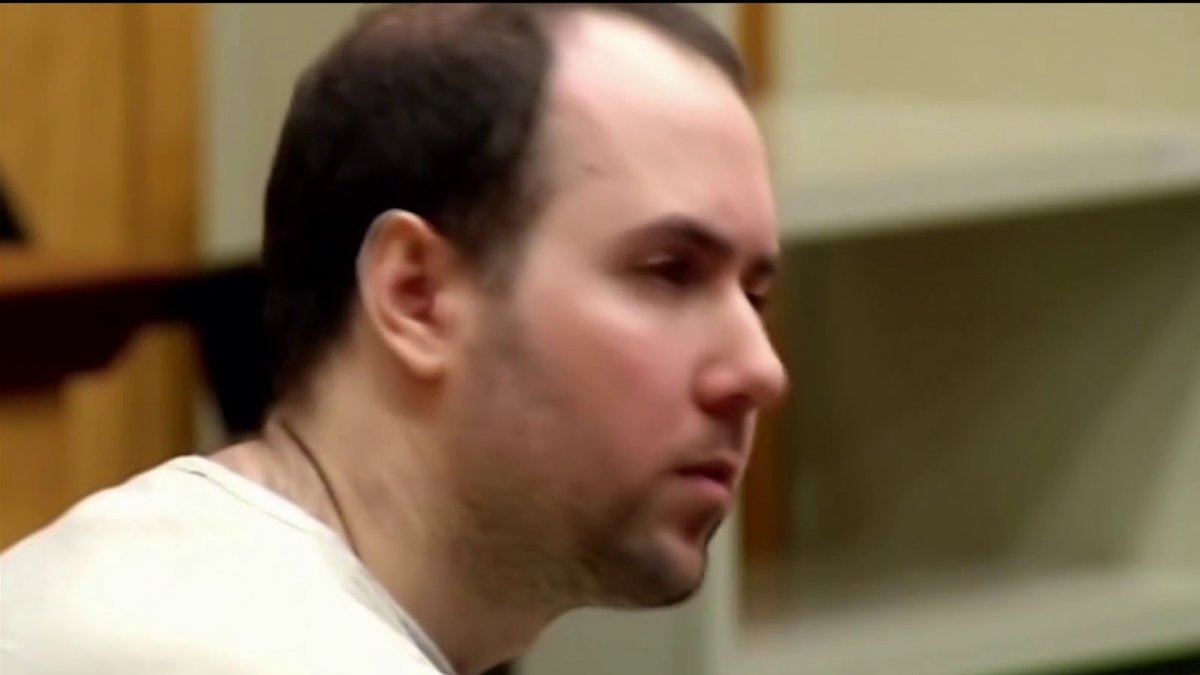
The man accused of gunning down a Wesleyan student 11 years ago will remain in a psychiatric hospital.
The man who gunned down a Wesleyan University student eleven years ago will remain in Connecticut’s maximum-security psychiatric hospital.
A panel ruled Stephen Morgan is not ready to move to a less restrictive setting, as he serves out his 60-year sentence.
Morgan, now 40, was found not guilty by reason of insanity in 2011 in connection with the 2009 fatal shooting of Wesleyan student Johanna Justin-Jinich inside a Middletown book store.
Rob Beecher / Record-Journal
His treatment team says he has experienced “uneven progress” the past two years at the maximum-security Whiting Forensic Hospital.
“In March of this year, Mr. Morgan appeared increasingly disorganized and paranoid," said Archer Bridgeforth, a licensed clinical social worker.
The treatment team spoke at Morgan’s bi-annual mandatory review, discussing how earlier this year it was again considering moving him to a less restrictive setting. They shared that at times, he refused to take his medications and displayed other behavior that made them reconsider.
Local
Morgan’s attorney Richard Brown acknowledged his client has suffered setbacks, yet understands the gravity of his actions.
“He has always expressed to me his remorse to the family for what he did, and he offers no excuses," Brown said.
Morgan was seen in the video conference leaving a room where he watched the hearing. He did not participate.
We also spoke with Johanna Justin-Jinich’s uncle, Sam Jinich.
“He does not deserve any reduction in his status or security conditions, no one should ever have fear that a relapse or medication noncompliance could cause their loved ones similar pain," Jinich said.
The Bay Area psychologist said he wanted to make a statement representing his brother, Johanna’s father, the late Dan Jinich. However, he said the Psychiatric Security Review Board told him he could not based on guidance from the Connecticut Attorney General’s office.
“I want to be there, every single time, every two years, at every hearing, I would like to have the right to speak on the victim’s behalf, her voice, and my brother’s voice," Jinich said.
Johanna Justin-Jinich’s mother, though, was allowed to have a statement regarding Morgan read on her behalf, so her family had some representation at the hearing.
The Attorney General’s office told NBC Connecticut Investigates: “The PSRB requested guidance from the Office of the Attorney General as to whether state regulations required them to allow the uncle to provide a victim statement. The statute is copied below. The Office of the Attorney General has no position as to whether or not the uncle should testify, and our involvement in this matter was limited to a review of statutory definitions of immediate family.”
Statute:
Sec. 17a-581-42. Victim statement
The victim, as defined by Section 17a-601 of the General Statutes, shall have the right to be present at any hearing, and to make a statement at the hearing, expressing his/her opinion(s) on the matter before the Board. The victim may submit such a statement in writing prior to the hearing to be entered into the record if the victim is not present at the hearing.
Conn. Gen. Stat. Sec. 17a-601 provides "’victim’" means a person who is a victim of a crime, the legal representative of such person or a member of a deceased victim's immediate family.”